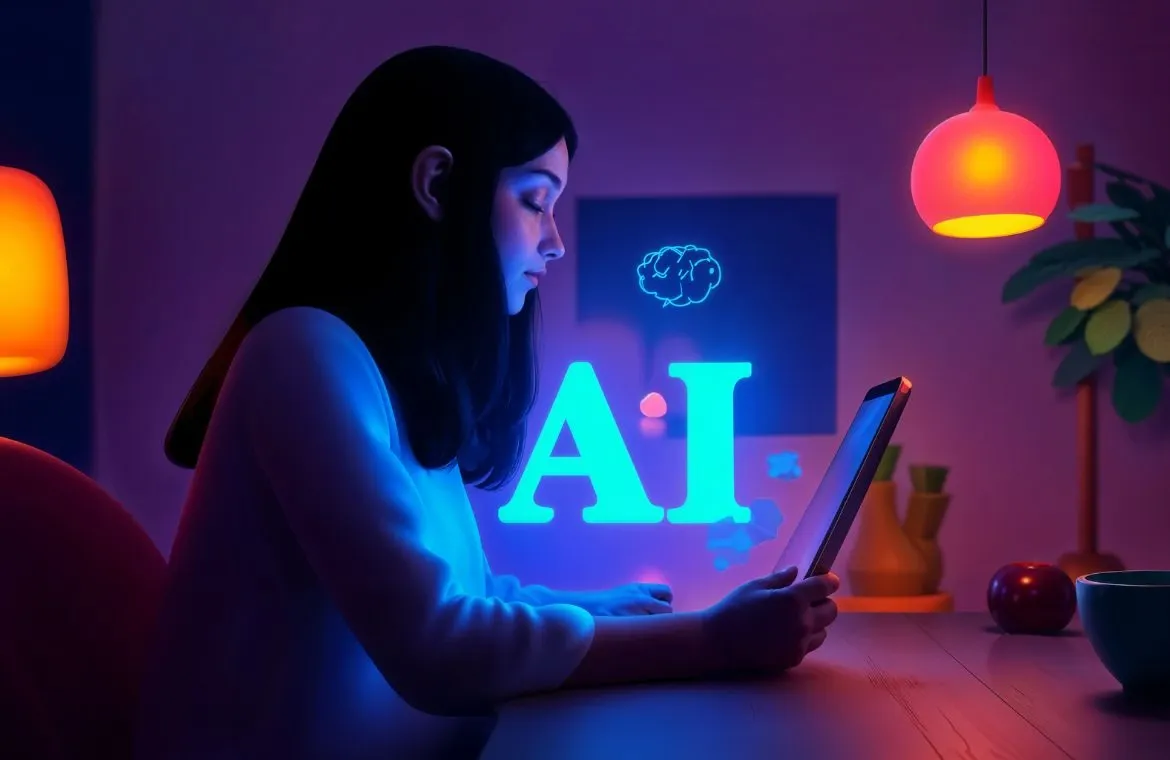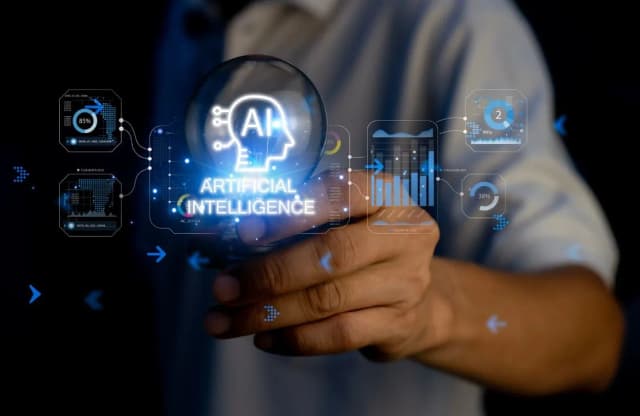The Future Possibilities of AI: What Your Life Will Look Like in 2030

The world is evolving faster than ever, and by 2030, AI will not only assist us but also collaborate, anticipate, and co-create with us. From healthcare that predicts illnesses before symptoms show, to cities that breathe with sustainable intelligence and education that’s personalized to your pace, AI will touch every aspect of our lives.
This blog explores what the world could look like when algorithms meet empathy and how AI might not replace humans but reimagine what it means to be human in the first place. Let’s step into 2030 and see the world through the lens of intelligent possibility.
The Age of AI: Where We Stand Today
AI has become part of modern society's fabric, laying the groundwork for major changes we'll see by 2030. The pattern follows what many call "gradually, then suddenly" - a progression that will speed up dramatically in the coming years.
Also Read: AI Chatbots: The Smart Conversation Partners of the Future
AI in everyday life: From phones to finance
People today have few direct interactions with advanced AI systems. They might ask ChatGPT or Google Gemini questions from time to time. AI is already deeply ingrained in our daily routines. A Pew Research Centre survey revealed that 27% of Americans say they deal with AI several times each day. Another 28% think they use it on a weekly basis. AI powers many aspects of our daily lives - from our phones and ride-sharing services to social media feeds and shopping recommendations.
Economic impact
AI in India is more than a technological shift, it's an economic revolution in the making. From empowering farmers to creating new-age tech jobs, AI is steadily reshaping India's economic future. As we move forward, responsible adoption, widespread skilling, and infrastructure readiness will be the keys to unlocking AI’s full potential in the Indian economy.
Why 2030 will be a pivotal year for AI
2030 will mark the turning point for the growth and advancement of AI. AI will blend completely into our personal and work lives by then. Jobs will change significantly due to AI before the decade ends. Everything moves faster now. This mix of widespread use, economic effect, and tech capability makes 2030 a defining moment in AI's future impact.
Emerging AI Technologies: The Next Big Things
AI technology is advancing rapidly, and three key breakthroughs are expected to reshape our world by 2030. These new technologies will transform how businesses operate and how you interact with smart systems on a daily basis.
Also Read: How AI Is Transforming Industries in 2025
Generative AI: Content, art, and creativity
Generative AI transforms creative work across industries by generating new content, art, music, and solutions to complex problems. This technology enhances human creativity in three ways: it saves time for deeper thinking, provides ideas that humans might otherwise miss, and fosters more effective responses to consumer needs. Generative AI works as a powerful assistant rather than replacing human
Quantum AI: Supercharged problem-solving
Quantum AI joins quantum computing with artificial intelligence to release computing power way beyond today's systems. It makes AI better through mixed approaches that blend quantum and classical computing strengths.
The results are impressive - quantum computing solves problems in minutes that would take regular computers millions of years.
AI in biotechnology: Precision medicine and beyond
AI and biotechnology are working together to change healthcare through personalized treatment. The technology excels in precision medicine by analyzing genomic, epigenomic, and clinical data to identify patients who require specialized care.
Scientists have already utilized AI to discover treatments for Alzheimer's disease and new antibiotics that are effective against resistant bacteria. These systems will change medical care through early treatment and genetic-based therapy as they continue to improve.
How AI Will Transform Key Areas by 2030?
AI applications will reshape many core sectors by 2030. These changes will bring about significant transformations in professional work methods and service delivery.
1. Healthcare: Predictive care and robotic surgery
AI will change surgical care by improving decision-making before, during, and after procedures. Surgeons will receive integrated information from multiple sources during operations through advanced systems.
Robotic systems powered by AI will perform tasks on their own, from closing port sites to complete procedures without human help. AI-powered models will provide surgeons with access to force measurements and enhanced detection of surgical margins.
2. Transport: Self-driving cars and smart traffic
Waymo Driver shows how AI will change transportation. It uses detailed custom maps and real-time sensor data to find exact road locations. Self-driving vehicles will talk through "AI-powered social networks" like Cached-DFL.
They share recent information about navigation challenges and road conditions without direct connections. Cars will see each other's "profile page" of driving findings through vehicle-to-vehicle (V2V) communication while keeping driver privacy safe. This technology will improve safety, help elderly and disabled people move around, and reduce traffic jams.
3. Education: Personalised learning at scale
AI in education will adapt content based on how each student learns and progresses. The system will study student performance to find problem areas and offer targeted help through practice exercises and extra materials.
These technologies will grow digital learning platforms, make use of information analytics, and improve student support through AI-driven tutoring with instant feedback.
4. Cybersecurity: Real-time threat detection
AI cybersecurity systems will monitor systems nonstop and give instant insights into suspicious activities. Advanced systems will analyze behavior to establish normal activity baselines and identify unusual patterns that may signal threats, such as cloud account theft.
By 2030, AI-powered systems will analyze large datasets to identify patterns and outliers. They will reduce false alarms by distinguishing between harmless and dangerous activities. This technology will identify and contain threats before they escalate, reducing the time systems remain vulnerable to risks.
5. Retail and finance: Smarter decisions, faster service
Financial companies will use AI to change customer experiences with highly personalised services. AI systems will study spending habits, savings patterns, and future life events to give custom suggestions. AI-powered chatbots will help with everything from balance checks to financial advice.
Retail businesses will improve operations through trend spotting, product development, and AI-native marketing. Both sectors will change as these technologies speed up data collection, remove human mistakes, and lead to better decisions.
Concerns and Challenges in the AI Future
AI technology has made impressive strides, but we must tackle several challenges to realise its full potential. The way AI might affect our work, ethics, privacy, and thinking raises serious questions.
Job displacement and economic shifts
Sectors like banking, retail, and manufacturing are already automating routine tasks, potentially displacing thousands of workers. For instance, ICICI Bank has integrated AI for credit assessments, reducing the need for manual loan processing staff. However, AI is also creating demand for roles like AI ethicists, data annotators, and AI trainers, fields still relatively new in India’s employment landscape.
Bias and ethical dilemmas in AI systems
India’s diversity is spread out across languages, socio-economic backgrounds, and regions, makes it particularly vulnerable to AI bias. For example, AI facial recognition software used in some Indian cities for law enforcement has shown accuracy disparities across skin tones and genders, raising concerns about wrongful identification and biased policing.
Summed Up: Preparing for an AI-Driven Future
By 2030, AI technologies are expected to reshape our world. AI will revolutionise healthcare with predictive care and transform transportation through autonomous vehicles. It will personalise education at an unprecedented scale, boost cybersecurity with live threat detection, and streamline processes in retail and financial services through smarter decision-making systems.
But, these remarkable advances come with their share of challenges. People worry about job losses, though research shows AI might create more jobs than it eliminates. Ethical issues, including bias, privacy risks, and potential cognitive decline, require careful consideration before widespread adoption.
Both individuals and organisations must prepare for this change. AI literacy will be crucial to stay competitive in tomorrow's job market. AI courses can be a foundational step to move into this direction with more confidence and gain the expertise and skills to stand out because, clear AI development and robust regulatory frameworks will help ensure these powerful technologies work for the benefit of humanity.
Frequently Asked Questions
Q1. What will AI be like in 2030?
By 2030, AI will be deeply integrated into daily life, powering smart cities, autonomous vehicles, personalized healthcare, and education, making decisions faster, processes smarter, and human-AI collaboration seamless.
Q2. What is the real future of AI?
The real future of AI lies in responsible, human-centered development, augmenting human abilities, driving innovation, solving global challenges, and transforming industries while raising critical questions around ethics, jobs, and inclusivity.
Q3. How can individuals prepare for an AI-driven future?
To thrive in an AI-driven world, individuals should focus on developing AI literacy, engaging in continuous learning, and cultivating uniquely human skills like creativity and emotional intelligence. It's also important to stay informed about AI regulations and participate in discussions about its societal impact.

TalentSprint
TalentSprint is a leading deep-tech education company. It partners with esteemed academic institutions and global corporations to offer advanced learning programs in deep-tech, management, and emerging technologies. Known for its high-impact programs co-created with think tanks and experts, TalentSprint blends academic expertise with practical industry experience.



